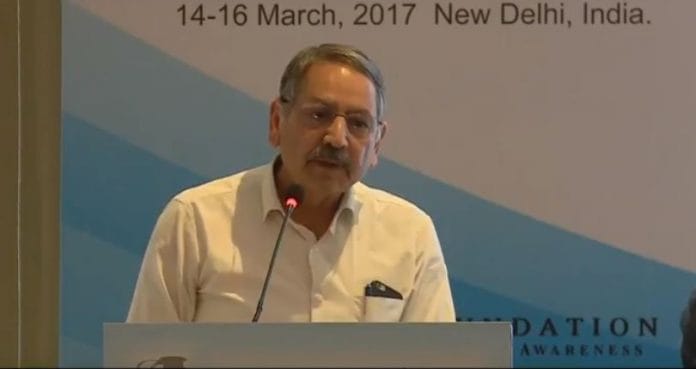The PIL has questioned the Modi government’s motivations in extending Karnal Singh’s two-year term, which would go against SC orders for a fixed term.
New Delhi: The Narendra Modi government’s plan to give a six-month extension in service to retiring Enforcement Directorate chief Karnal Singh has been challenged in the Supreme Court, in a PIL filed by former Indian Revenue Service officer Uday Babu Khalwadekar.
The petition could be heard next week.
In his petition, Khalwadekar has pointed out that Singh, a 1984-batch IPS officer of the Union Territories cadre, was to retire in August 2017, but was given a two-year term as ED director — effective October 2016 — on the directions of the top court. He is now being granted an extension until April 2019.
Singh is the first IPS officer to hold the sensitive post.
ThePrint had reported the Modi government’s plan earlier this month.
Also Read: ED chief Karnal Singh to get yet another extension, this time for six months
The petitioner has pointed out that the ED under Singh has been investigating several high-profile and politically-sensitive cases, and with assembly elections already scheduled, the government’s plan to extend his service “is only to take advantage”, and that “such an extension for such short tenure creates a doubt on the decision of the government, more so when it is close to state assembly and general elections”.
At odds with SC orders and CVC Act
It was on Khalwadekar’s earlier PIL that the top court had — on 30 January 2017 — directed the Centre to appoint an ED director for a period of two years.
In that petition, Khalwadekar had questioned the ad-hocism in appointing ED chiefs for short periods, saying short extensions were a violation of the Central Vigilance Commission Act, which lays down a detailed process of appointing the ED chief on the recommendations of a five-member committee headed by the central vigilance commissioner.
The purpose behind the enactment of the CVC Act and providing for a process for selection of the CVC, the petitioner stated, was to provide security in tenure for the ED chief so as to ensure “a certain degree of independence”.
Also Read: Probe against ED officer not likely to affect Aircel-Maxis investigation
The Centre, he has argued, was “bent upon” granting ad-hoc extensions and not appoint a full-time director with a secure tenure to replace Singh, something that severely compromises the functioning of the ED.
Before he was appointed for a two-year term, Singh was first given additional charge of the post in August 2015 for a period of three months. Then came several similar short-term extensions until, on the directions of the Supreme Court, he was granted a two-year term ending on 26 October 2018.







Fixed tenures sound like good administration in theory. In practice, an officer is often appointed to such a past a few days – or even a few hours – before he is due to retire. That in effect gives him a two year extension. The CJI does not have a fixed two year tenure, retires punctually at 65, sometimes in the middle of the month. Look back to the apex of the civil service, where cabinet secretaries are now averaging four year terms, courtesy extensions, and recall one incumbent who has left footprints on the sandy banks of the Yamuna.